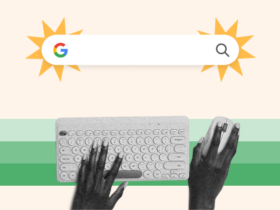In America, 73% of adults own at least one laptop or desktop computer. However, the introduction of tablets for business has steadily brought ownership of tablet devices up to 45%. In fact, many Americans own both a laptop and tablet for business and personal use. Unfortunately, with the cost of digital devices, starting your own collection of tablets and laptops may not be an option.

Ready to purchase the perfect pairing for your digital needs? If you are in the market for just one device, you’ll need to understand the pros and cons of the laptop vs. tablet debate before making a purchase. Follow along to determine which portable computer device is right for you and how to land the best deal on your purchase.
Laptop Vs. Tablet Use
Before you get into comparing laptop specs and price points, you’ll need to think about when and where you’ll be using your device. Since each system will provide different features and limitations, you’ll need to determine what you need your device to do before narrowing down the right fit.
For Work
If you plan on using your device for work or school, you’ll likely find that a laptop is the most realistic option. This is because most of your tasks will involve the use of a keyboard.
You can buy attachments to go with your tablet for a more useful typing experience than the soft keys on the screen. However, these keyboards are an extra step to remember and are often quite small. This can make typing lengthy documents more difficult or frustrating for the user.
Of course, some roles and industries are supported by the use of a tablet. Certain programs are navigated better with a touch screen and app orientation. If you use design or scheduling apps, you may prefer the ease of the smaller, more portable device.
Personal
Do you plan to use your device for casual internet browsing and entertainment? In this case, you’ll likely find a tablet more suitable for your primary usage.
Many social apps such as Instagram and Snapchat are more easily accessible on a smartphone or tablet. Their app configuration makes them simple to download to your home screen and launch with just a touch.
Beyond browsing, you’ll likely find that games and e-books can easily navigate the touch screen and smaller handling. You can even set up your favorite streaming services like Netflix or Amazon Video to choose movies at home or on the go.
If your personal use activities include writing emails, you can use the attachable keyboard option mentioned earlier. However, if you plan on spending a considerable amount of time typing, a laptop will usually be the best option.
Portability
The size and weight of a device may be the determining factor for easy transport. If you plan on packing your device to and from the office, a laptop is still a reasonable option. If applicable, be sure you have an effective carrying case that includes space for your power cable and external attachments.
On the other hand, if you are purchasing an item to travel or are consistently on the go from location to location, you may find a tablet is more convenient.
The size and weight of both tablets and laptops vary, but tablets are almost always smaller and lighter than their laptop competitors. This makes them much easier to pack into a carry-on or keep in your shoulder bag while touring a new city.
Of course, the compact feature of the tablet does come with its downfalls and is negated if you need to bring along a portable keyboard or external memory devices on every outing.
Display
It should come as no surprise that a laptop will have a leg up in the display department. Since the screens on these devices are often larger than the tablet alternative, a laptop is generally a better choice if you depend on a quality screen.
On top of the size, a laptop also has more advanced settings and preferences and a larger processor to handle the upgrades.
The best tablets offer impressive image quality, but you’ll find these options much higher priced than a midrange solution. However, the increased display quality may not be important for general use sessions. You’ll need to consider this factor more if you plan to do activities such as editing photos and videos or require a larger screen to view your documents and browsers.
Memory
While a smaller device may be handy for portability, it is important to note that the decreased size also means less memory space. When shopping for a tablet, you’ll notice different brands will have memory storage options that separate their cost.
The more gigs of memory you need, the higher your tablet price will be. While you have options for added storage through micro SD cards, this storage is generally significantly lower than a laptop. The extendible memory options are often much greater with laptops because they contain more connectivity points for external drives and external SSD devices.
If you plan to save lots of large-sized documents and images to your device, you’ll need to consider the build-in and extendible memory options.
Camera
A tablet will contain both a front-facing and rear-facing camera. A laptop, on the other hand, will only feature a front-facing option. Also, the quality of a laptop camera is often much lower.
Most users would only put the camera to work for applications like skype and zoom meetings. While the participants in your meeting or social exchange will want to see your face, they don’t require the best camera on the market to translate the image effectively.
Tablet cameras are more similar to smartphone cameras. This makes them a great option for on-the-go photos without having to purchase an additional camera.
Battery
The battery life of a laptop vs. tablet is considerably lower. While a tablet may stretch for 7 or 8 hours of use, a laptop will need a recharge far more frequently during heavy use.
This is because the processor in the laptop is much more power-hungry than a tablet. There are more programs to fuel and a larger screen to keep bright. For this reason, you might find a laptop more reasonable for those times where you have easy access to power points.
Tablets will be the better option for ‘out and about usage, such as entertaining yourself on public transport or getting some work done at the park on a nice day.
Overall Performance
The best laptops and tablets will offer many features and upgrades, many of which you may not even use. You may even find following along with laptop specs quite overwhelming. However, these are the elements that will elevate the performance of your device and make for a more enjoyable session.
Layout
The layout of a laptop vs. tablet is really quite a unique experience. While the home screens are getting closer and closer to mimicking each other, the benefits of each layout are quite different.
On tablets, you’ll have the ease of a touch screen, making accessing apps and navigating browsers quite simple. However, switching back and forth between applications and internet tabs is more inconvenient on a tablet than on a laptop.
With laptops, you have the advantage of seeing what programs you have open and quickly pulling up and layering these pages. On the other hand, tablets will require you to either close an app and launch another or scroll back and forth with the multi-screen options.
Connectivity Points
As mentioned earlier, a laptop’s size enables the integration of more connectivity points. Most tablets will have a headphone jack, power access, and potentially a memory card slot.
Any additional add-ons such as a keyboard or speaker will need to be connected through wifi or Bluetooth features. If you are searching for tablets for business, keep in mind that this significantly limits your ability to ‘plug in’ for presentation sharing at work. You’ll also face a larger challenge for moving documents to external memory devices for transportation or storage.
Price
To stay on budget, you’ll need to consider what you can get for your money with each of these devices.
A tablet will almost always be a cheaper option. However, you may find your bill escalates quickly with the addition of add ons such as Bluetooth keyboards and protective cases.
While the best laptops offer more features and functional specs, the price of these units will likely be much higher than the best tablets. Fortunately, you can usually save on your purchase by browsing sites like lenovo.com. This way, you can find an option with all the advances you need without breaking the bank.
Purchasing a Laptop Vs. Tablet
Now that you know the benefits and limitations of laptops and tablets, you can confidently set forth when choosing your next device. From your everyday usage to associated costs, you can make the best choice for your unique needs and get the most out of your computer choice.
Curious about the laptop vs. tablet benefits when it comes to fueling your digital marketing approach or maximizing your blog? Check out our other articles to learn everything you need to know about navigating the digital world and building your business with the help of the internet.











